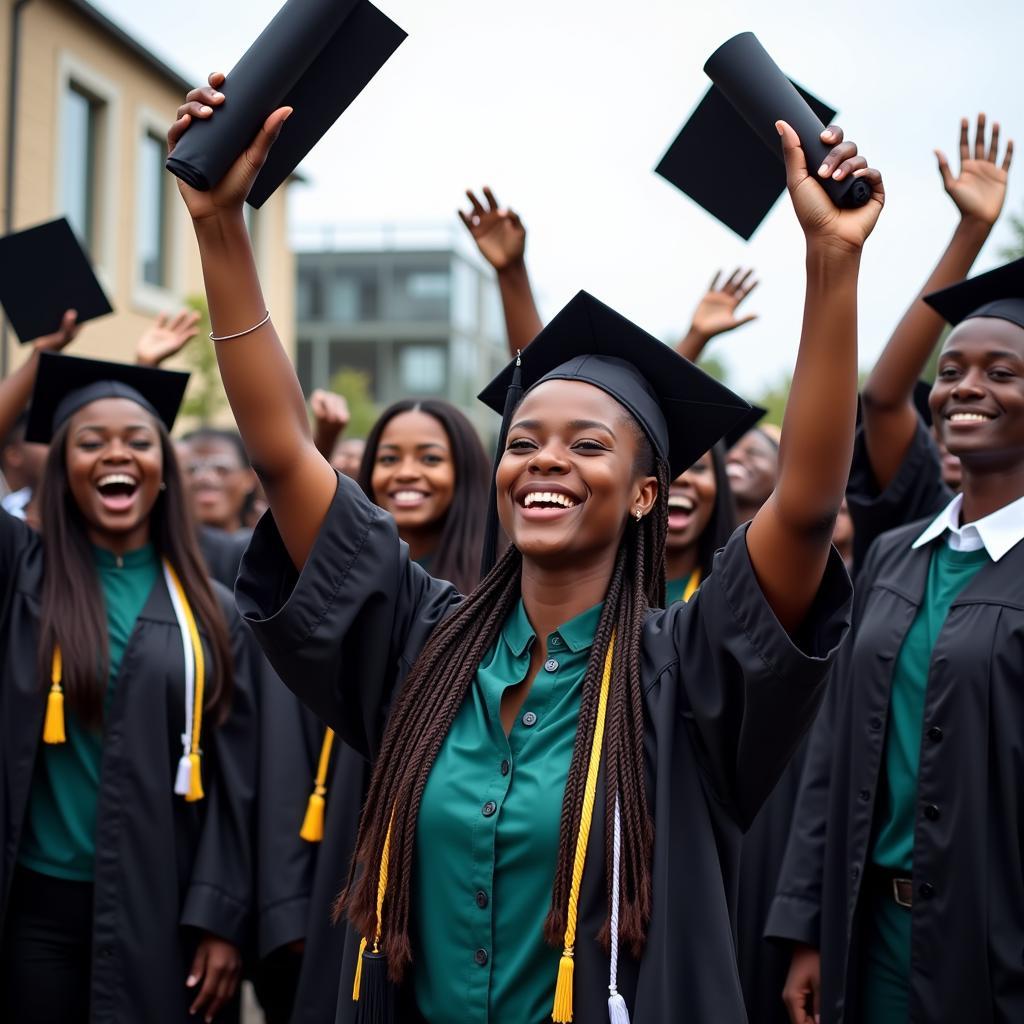Celebrating African Graduation: Traditions, Significance, and the Future
African Graduation ceremonies are a vibrant tapestry of cultural traditions, joyous celebrations, and profound significance. This milestone represents not only the culmination of years of hard work and dedication but also the beginning of a new chapter filled with opportunities and possibilities. From the bustling cities of Lagos to the serene villages of the Maasai Mara, African graduations are steeped in rich heritage and symbolize hope for the future.
The Significance of Education in African Culture
Education has always held a place of paramount importance in African societies. For centuries, knowledge has been passed down through generations, often orally through storytelling, proverbs, and songs. It is seen as a key to personal growth, social mobility, and community development.
African communities often view education as a collective effort. Families, extended relatives, and even neighbors contribute to supporting students financially and emotionally throughout their academic journeys. This collective spirit underscores the belief that the success of one benefits the entire community.
Diverse Traditions and Rituals
Across the diverse landscape of Africa, graduation ceremonies are celebrated with a captivating array of traditions and rituals.
-
Traditional Garments: In many cultures, graduation attire extends beyond the traditional cap and gown. Graduates may wear colorful fabrics, intricate beadwork, or garments specific to their ethnic group. These attire choices reflect cultural pride and serve as a visual representation of their heritage. african dress styles for graduation highlight the beauty and diversity of these garments.
-
Music and Dance: Music and dance are integral parts of many African celebrations, and graduation is no exception. Rhythmic drumming, spirited singing, and energetic dances infuse the occasion with an infectious joy. These performances often tell stories, offer blessings, or simply express the collective exuberance of the community.
-
Speeches and Blessings: Graduation ceremonies frequently feature speeches from elders, community leaders, and esteemed guests. These speeches often impart wisdom, offer guidance to the graduates, and emphasize the importance of using their education to contribute to society. Traditional blessings are also common, invoking success, prosperity, and fulfillment in the graduates’ future endeavors.
-
Feasts and Gatherings: No African celebration is complete without a feast! Generous spreads of traditional dishes are shared amongst the graduates, their families, and the wider community. These gatherings are a time for laughter, storytelling, and strengthening bonds.
African Graduation: A Springboard for the Future
While African graduation ceremonies are steeped in tradition, they also mark a pivotal moment in a graduate’s journey toward shaping the future.
-
Economic Empowerment: Education is a powerful tool for economic empowerment, and African graduates are increasingly equipped to contribute to the continent’s growing economies.
-
Leadership and Innovation: African graduates are emerging as leaders and innovators in various fields. They are at the forefront of technological advancements, entrepreneurial ventures, and social change initiatives.
-
Global Citizens: Many African graduates pursue higher education or career opportunities abroad. This global exposure enriches their perspectives, fosters cross-cultural understanding, and allows them to contribute to a globalized world.
 Graduates Celebrating with Diplomas
Graduates Celebrating with Diplomas
Frequently Asked Questions
1. What is the significance of traditional attire at African graduations?
Wearing traditional garments at graduation is a powerful symbol of cultural pride and heritage. It showcases the diversity of African cultures and celebrates the graduate’s roots.
2. Are there any specific rituals performed during an African graduation ceremony?
Rituals vary significantly across different cultures, but common elements include speeches from elders, blessings, traditional dances, and celebratory feasts.
3. How does the community support students throughout their education?
Education is often viewed as a collective responsibility in African cultures. Families, relatives, and community members often contribute financially and emotionally to support students.
4. How are African graduates contributing to the continent’s development?
African graduates are making significant contributions in various sectors, driving economic growth, leading innovation in technology and entrepreneurship, and advocating for social change.
5. What are some challenges faced by African students in pursuing education?
Despite progress, access to quality education remains a challenge in some regions due to factors such as poverty, limited infrastructure, and gender inequality.
Continuing the Journey
African graduations are a testament to the enduring value placed on education and a celebration of individual achievement and collective pride. As African dream girl stories continue to inspire, African graduates are poised to shape a brighter future for themselves, their communities, and the continent. Their stories are a testament to the transformative power of education and a beacon of hope for generations to come.
For any inquiries or support regarding opportunities in Africa, reach out to us at:
Phone Number: +255768904061
Email: kaka.mag@gmail.com
Address: Mbarali DC Mawindi, Kangaga, Tanzania.
Our dedicated team is available 24/7 to assist you.

